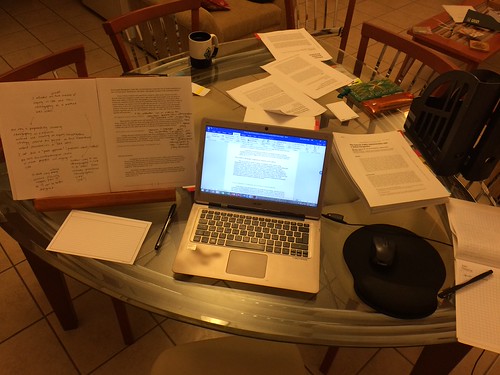Since I teach in Mexico and mentor doctoral students in Spanish, but the requirements for a global academia are increasingly international, I am always on the lookout for stuff that I think will help my graduate students. I found Hilary Glassman-Deal’s book “Science Research Writing for Non-Native Speakers of English“ during my search, and wanted to check it out.
I think that overall, this book might help those who are non-native English speakers improve their scientific writing. Though strongly geared towards STEM, I believe it can help those in the humanities and social sciences.
This book is very much STEM-oriented, and therefore offers little guidance on how to write in the humanities and several social sciences that do not report in the IMRAD model. However, as it’s written as a workbook, I found its exercises useful, though I haven’t asked my students
— Dr Raul Pacheco-Vega (@raulpacheco) October 18, 2018
Exhibit B: teaching non-native speakers to skim before they are able to write robustly (as Glasman-Deal does here) is quite difficult, and I don’t think NNES should be pushed to learn to skim before they’re comfortable doing in-depth reading in English. pic.twitter.com/q9f9RGelzQ
— Dr Raul Pacheco-Vega (@raulpacheco) October 18, 2018
I wrote a very short blog post on why universities and faculty ought to help non-native speakers develop robust writing skills https://t.co/RZf1fZProQ it contains *some*, not many recommendations, but the tweet thread that gave rise to this blog post does have others </end>
— Dr Raul Pacheco-Vega (@raulpacheco) October 18, 2018
Overall, a nice book that should be useful as well for STEM folks. At some points, I wasn’t completely on board with her methods, but again, I think and read and write in English, so I am not the best at assessing fit for non-native English speakers.
If you liked this blog post, perhaps you’d want to check my reading notes of other books on various topics, including scholarly writing, or my page on reading notes of books geared towards doctoral candidates undertaking their dissertation research. Disclaimer: I purchase all my books with my own hard earned money, and I receive absolutely no cash from promoting, reading or reviewing these books. My intention is simply to help others in academia, particularly graduate students and scholars at the margins.


0 Responses
Stay in touch with the conversation, subscribe to the RSS feed for comments on this post.